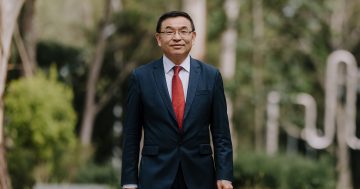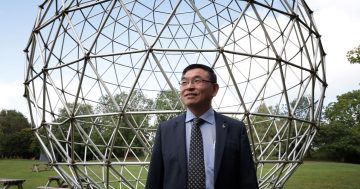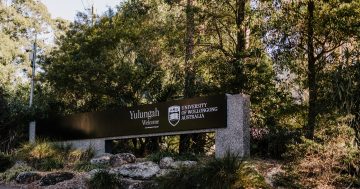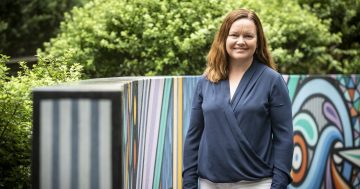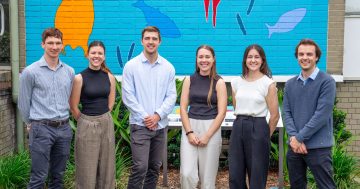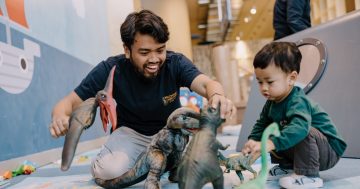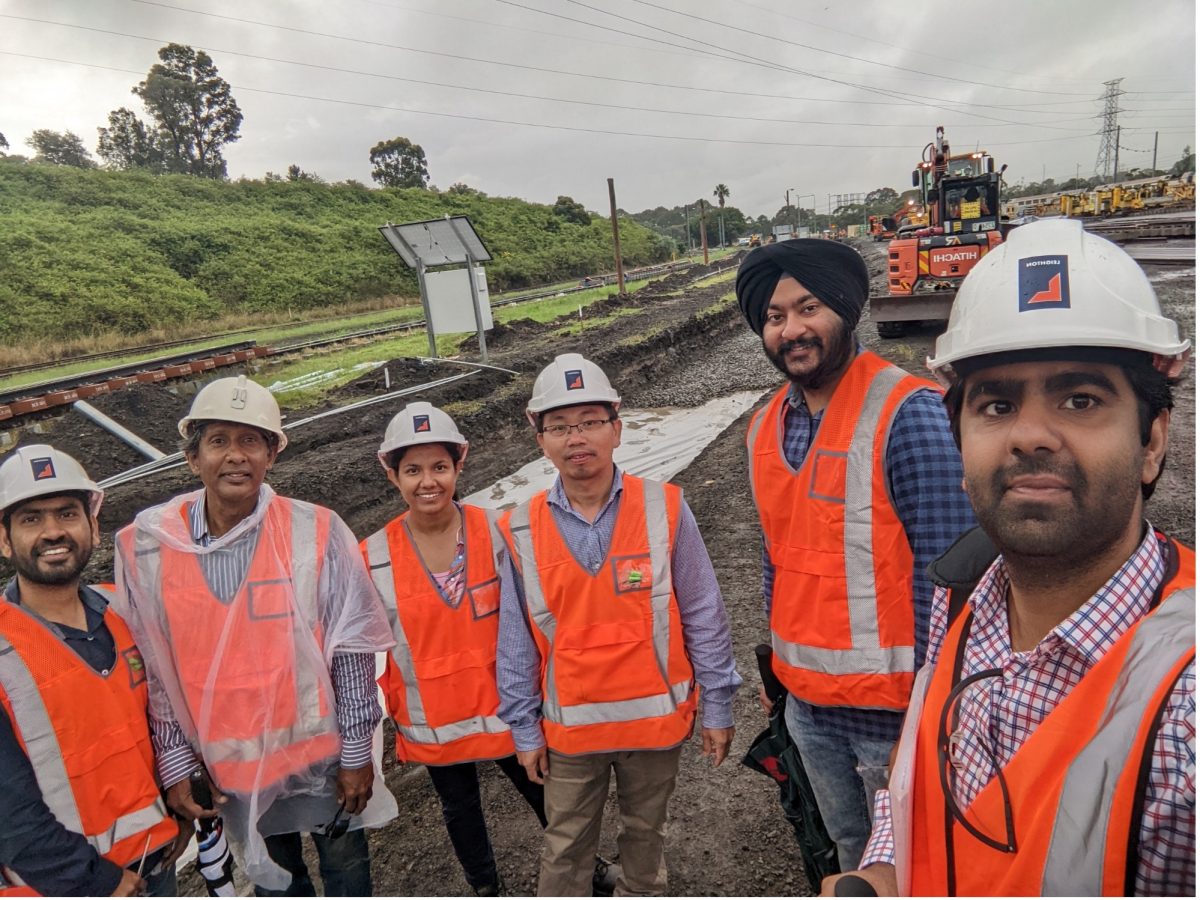
Prof Indraratna (second from left) with some of his research staff at a new rubber tyre foundation technology trial in constructing a rail track at the Chullora Technological Precinct. Photos: Buddhima Indraratna.
The former University of Wollongong (UOW) Distinguished Professor of Civil Engineering, founding director of the Centre for Geomechanics and Railway Engineering and celebrated innovator Professor Buddhima Indraratna AM has been awarded the Order of Australia in the General Division of the Australia Day 2024 Honours List.
Prof Indraratna is perhaps best known for pioneering railway track research in Australia and, during his 29-year UOW tenure, inventing a railway shock absorption solution that could save the industry millions in maintenance costs and reduce the risk of derailments.
Prof Indraratna’s research was concerned with transport geotechnics and ground improvement – how the geological conditions of railway foundations impacted the health and longevity of commuter and freight trains.
It was quite a journey that led the distinguished professor to become a leading authority in the relatively niche yet critical component of the rail industry.
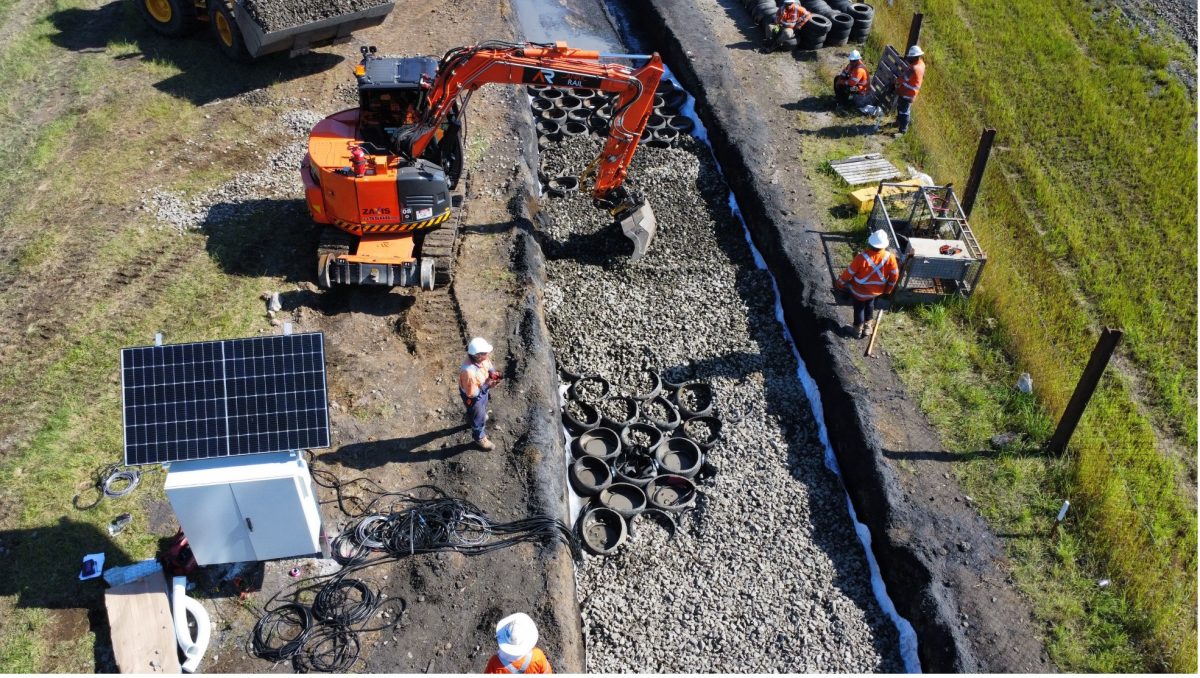
Drone image of the construction of a section of trial track near Sydney using rubber tyre foundation technology based on Prof Indraratna’s research in collaboration with Sydney Trains, EcoFlex Australia Ltd and Bridgestone.
Born in Sri Lanka, Prof Indraratna was raised and educated in London and completed his PhD in Canada. Following a career in engineering was a “difficult choice, but an obvious one”.
“I came from a family of doctors. My mother, brother and sister were all doctors, and there was some pressure from my late parents and former teachers to take up medicine. But I had a passion for engineering,” he says.
“From the time I was little I had an obsession with infrastructure. I was forever looking at skyscrapers, bridges and so on. When I opted into civil engineering after high school, I found I had an aptitude for it, so I decided to follow engineering.”
At his first engineering job for a British company he was sent on a dam engineering project to his native Sri Lanka, where he discovered a love for geotechnical engineering. This fascination with the problems of soils and rocks eventually segued into its applications in transport, which in turn led to a celebrated innovation.
“When building roads and railways, there are environmental restrictions for opening new quarries because extracting the natural rock impacts the landscape. So I started looking more closely at the use of waste materials,” he explains.
“In the Illawarra we have mining and steel manufacturing which produce heaps of waste materials like coal wash, fly ash, blast furnace slag and steel slag. The mining industry also discards a lot of rubber tyres used in big trucks and mining machinery. I proposed that rather than using natural materials, it would be more carbon-friendly to use these waste materials.”
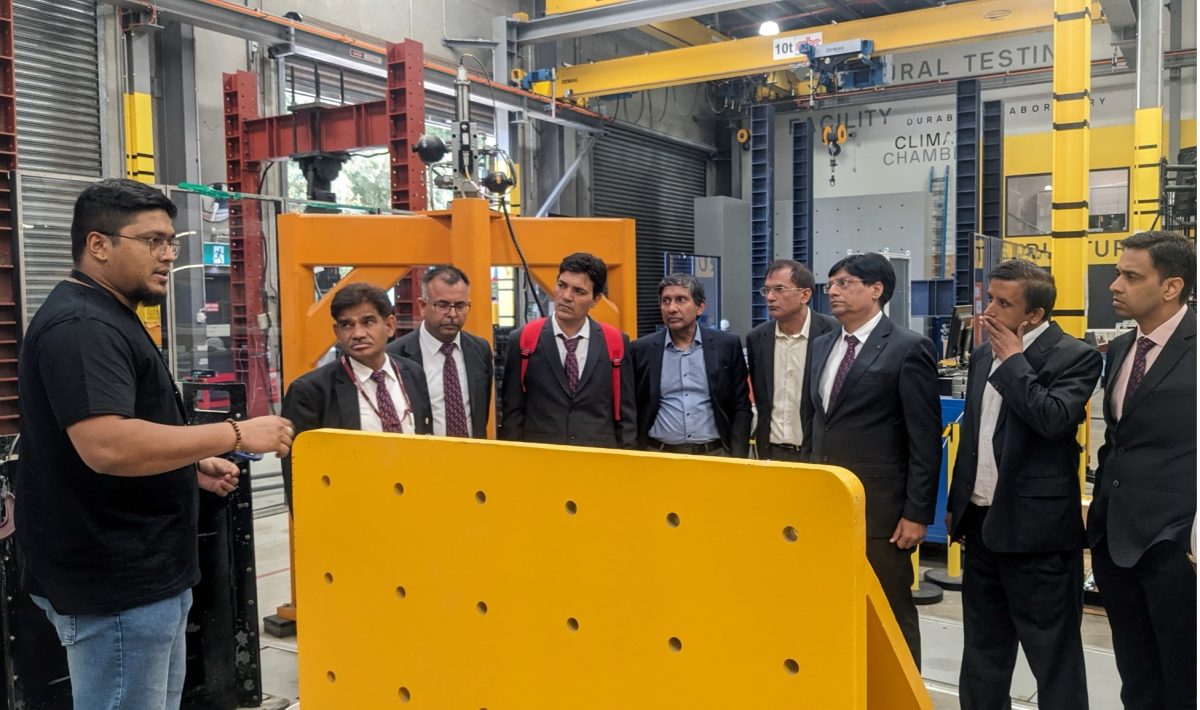
Prof Indraratna (fifth from left) observes as one of his PhD students, Suwan Hettiyahandi, demonstrates the capability of Iconic Rail Track Testing Equipment to a delegation from Indian Railways.
Along low-lying coastal areas, often the geological composition under a railway track is soft and requires compacted granular materials to stabilise the foundations before placing the ballast (the gravel or coarse stone used to form the bed of a railway track).
Prof Indraratna’s solution involved reforming old rubber tyres into a honeycomb structure and filling each cell with compacted recycled waste materials ranging from building demolition waste to coal wash and even broken glass. This layer beneath the ballast would absorb impact loads and reduce wear and tear on railway components.
Early trials suggest the invention could extend maintenance periods by 100 to 200 per cent, saving millions in maintenance costs, diverting waste materials from landfills and reducing the need for natural materials, hence quarrying.
The rubber-based shock absorbing system also reduces the risk of excessive track displacements and potential derailments and provides noise and vibration dampening for surrounding residential areas.
Already countries such as China and India are looking to adopt similar technology.
Prof Indraratna and his research team have also introduced novel ways of improving conditions in the soft and compressible soils that pose significant challenges to the construction of railways, particularly in Australia’s coastal areas.
Today Prof Indraratna is a Distinguished Professor and Director of UTS Transport Research Centre, University of Technology Sydney.
He says the honour of the Order of Australia, awarded for his significant service to civil engineering, particularly through infrastructure development, ground improvement and transportation geotechnics, came as a welcome surprise.
“It’s not something I set out to achieve, but I do feel that these awards reflect that the Australian government and people appreciate technological advancements that enhance the lifestyles of our communities, and that makes me happy,” he says.
“I hope it makes my research teams past and present very proud as well. I am accepting this award not only for me, but also for all the research students and colleagues who’ve contributed even in little ways over the years for advancing Australia’s transport infrastructure.”








